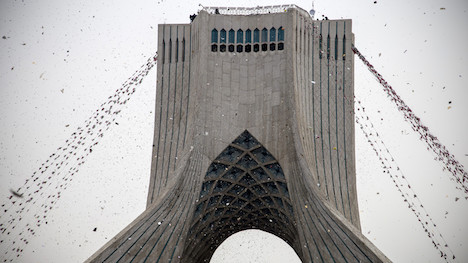Let’s not pretend US actions or words on Iran have any legitimacy. The real ‘threat to the world’ comes from self-righteous warmongers in Washington, not from Tehran. We’ve heard it all over the past week. Iran is a “threat to the world”, a “sponsor of terrorism”, is “destabilizing the Middle East”, and the international community must “cooperate” over this grave threat by implementing crushing United Nations sanctions on the country, including an arms embargo, as part of a “snapback” option against it. Shamelessly, Mike Pompeo positions himself once again as a champion of freedom, claiming he is on a self-righteous mission to stop the tyranny of Iran from “obtaining a nuclear weapon”. Except it’s as unconvincing as it is tedious and dishonest: The world yawns, but also itches in frustration as it is lectured to by a Washington which demands they fall in line with measures, which have no legitimacy or standing under international law whatsoever. The US wants to have its cake and eat it with Tehran. It has withdrawn from the Joint Comprehensive Plan of Action (JCPOA) and ceases to be a party to it, yet behaves as if it is still a party and that Iran are the ones in violation of it. One rule for thee but not for me. America’s narrative and attitude towards Iran at large is one given very little attention by the mainstream media and public at large, nor is it met with any serious opposition. Despite the White House policy on the matter being built on abject falsehoods (the International Atomic Energy Agency (IAEA) never found Iran was violating the deal), open violation of international law and an illegal use of force in assassinating Qasem Soleimani, few question the strategic and political merits of extreme confrontation against Tehran, nor does it rank very high on people’s priorities. But it should all be called out for what it is: unacceptable and illegitimate. The reason why Washington is able to get away with such aggression against Tehran, especially more than other countries, is based squarely on racism, as well as religious and cultural prejudice. As an Islamic Republic in the Middle East, popular conceptions of recent history sadly work against Tehran. Despite the empirical fact that it is Sunni aspired Wahabism and Salafism which has spurred terrorist organizations in the region such as ISIL, alongside the toxic crucible of American led wars and bombing campaigns, the likes of Pompeo frame Iran through commonly held beliefs concerning Islamic fundamentalism and terrorism, which of course win the country very little public sympathy. These clichés distort Iran’s geopolitical behaviour and the historical factors that have determined it. Iran is not an irrational, sub-state terrorist actor, but a nation state whose ideology has developed over time as a reaction to the foreign aggression against it within the Middle East. Mullah rule in Iran is not so much a mindless fanaticism, but a form of nationalism in “protecting” the historical Persian nation state. We hear very little about how America’s actions have influenced this, motivated by the goal of bringing the country’s oil reserves under their political control. This led to the CIA toppling the democratically elected, left wing Mohammed Mosaddegh in 1953, imposing right-wing autocracy under the Shah, to the support of the invasion of Iran by Saddam Hussein’s Iraq in the 1980s, and continues to this day. Iran as we know it today is the long-term product of these legacies. It is not engaged in “spreading terrorism”, but is, in fact, fighting a regional struggle for its own security against American allies in the region, which includes Israel and the pro-US Gulf states. It is the latter that detested the Joint Comprehensive Plan of Action and have subsequently lobbied America for a hard-line stance against Tehran, which American hawks have bought into as it supplements their objective of dominating the entire Middle East and thus reincorporating Iran, an oil rich country which they “lost” in 1979, back under their influence. Given this situation, the US has completely falsified, against all credible evidence, that Iran is violating the JCPOA to create a façade to push for sanctions in the hope of generating regime change within the country. This has been set out in an orientalist, Islamophobic rhetoric which has sought to consistently smear the country with stereotypes of terrorism and religious fanaticism, ignoring and omitting the historical realities and extensive record of American crimes against the country itself. We should not pretend that US actions against Iran have any legitimacy whatsoever, as they do not, either under international law or in fact. It’s a painfully obvious, yet convincing, mirage for geopolitical objectives in the Middle East. Just like with Saddam’s “weapons of mass destruction”- the US continues to propagate its policies and path of destruction in the region based on falsehoods. Sadly, the general indifference of the public and their ingrained phobia towards the Islamic world, has made many people unsympathetic towards Tehran. The falsely marketed US propaganda has done its job. Iran is seen not as a repeated historical victim of American aggression, but (wrongly) as a warmongering nation led by fanatics driven by irrational impulses. But which country do those words best describe? Source URL |
